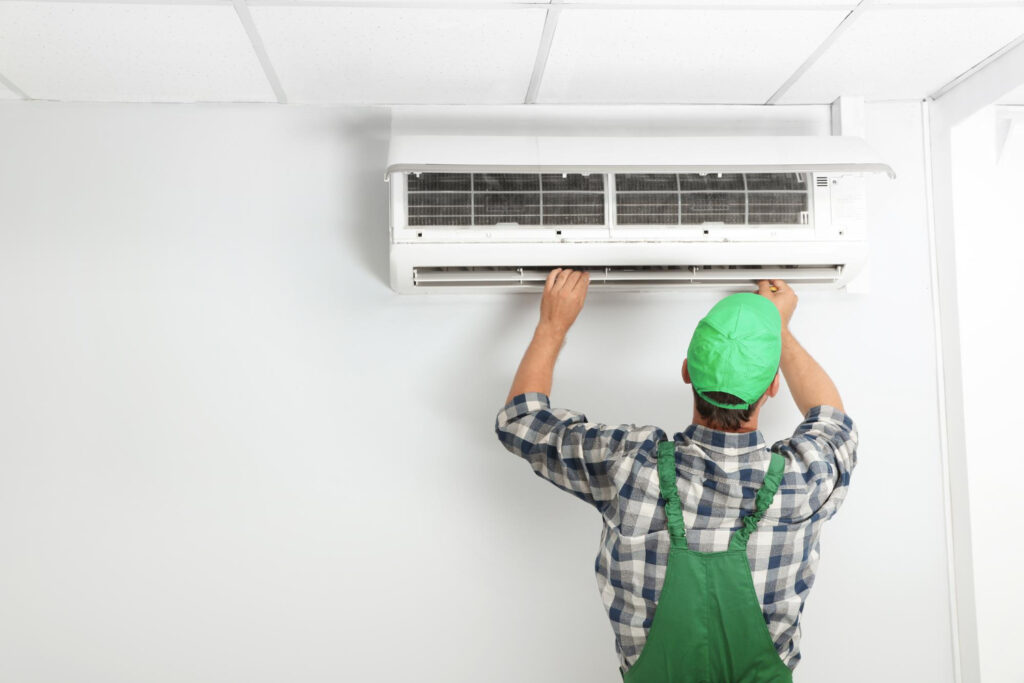Your air conditioner should run smoothly and quietly, providing comfort without distractions. However, unusual vibrations or sounds coming from your system can be signs that something is off. Whether it’s a faint humming, loud banging, or rattling noise, these disturbances shouldn’t be ignored. Strange sounds often indicate mechanical issues, loose parts, or airflow problems that can worsen if left unchecked. Recognizing the cause early can save you from costly repairs and keep your home’s cooling system running efficiently. We will explore the most common reasons behind AC vibrations and noises, along with effective troubleshooting steps to restore calm and comfort.
Understanding the Common Causes of AC Vibrations and Noises
- Loose or Unbalanced Components
When your air conditioner in Valencia, CA starts making clunking or rattling sounds, the issue may stem from loose or unbalanced components within the system. Over time, continuous operation can cause screws, bolts, or panels to loosen slightly due to vibration. Even a small imbalance in the fan blades or motor mounts can cause the entire unit to shake. These vibrations can travel through ducts and walls, creating amplified noise. To troubleshoot, start by turning off the system and visually inspecting external parts for looseness. Tighten any visible screws, ensure the fan is balanced, and verify that the unit sits evenly on its base. In some cases, uneven surfaces or improper installation may also cause the system to vibrate excessively. Regular maintenance and inspection can prevent these mechanical imbalances from developing into larger issues that could damage the compressor or fan motor.
- Debris or Obstructions Inside the Unit
If you hear rattling, clicking, or buzzing noises, it may be due to debris that has entered the outdoor condenser unit. Leaves, twigs, or small stones can get caught between the fan blades or lodged near the compressor. As the fan operates, the foreign object repeatedly strikes against the blades or housing, creating continuous noise and vibration. To fix this, first switch off the power supply to the unit for safety. Then, remove the outer cover and carefully clear away any debris. Once the area is clean, rotate the fan manually to check for any friction or imbalance. Ensuring the surroundings are clean and keeping the area free of foliage can also prevent debris-related vibrations in the future. Routine maintenance by a qualified HVAC technician helps ensure that your system remains clean and efficient, minimizing unnecessary noise.
- Faulty Fan Motor or Worn Bearings
A grinding or screeching sound typically indicates issues within the fan motor or its bearings. As bearings wear out, they lose lubrication and start to create friction. This friction generates both noise and vibration as the motor struggles to rotate smoothly. If left unattended, the motor can overheat, resulting in more severe mechanical damage. The best approach is to shut down the unit immediately when you notice these symptoms and have the motor inspected. Some motors allow for bearing replacement or lubrication, while others may require a complete motor replacement. To prevent this problem, schedule regular maintenance and make sure moving parts are properly lubricated. Neglecting such maintenance can increase energy use and strain the compressor, which in turn affects the overall lifespan of your AC system.
- Refrigerant Line Issues
Hissing, bubbling, or pulsating sounds could indicate problems in the refrigerant lines. If the lines are loose or improperly mounted, they can vibrate against walls or other surfaces as refrigerant moves through them. This not only creates unwanted noise but can also signal leaks or pressure irregularities. Leaking refrigerant can impact cooling efficiency and may cause your system to run longer to reach the desired temperature. To address this issue, inspect the lines for any signs of movement or contact with hard surfaces. If leaks are suspected, avoid attempting repairs on your own—handling refrigerant requires professional tools and safety measures. Properly secured refrigerant lines reduce vibration and noise, ensuring consistent cooling performance. Routine checks help catch such issues early, avoiding more extensive and costly repairs.
- Compressor Problems
The compressor, often referred to as the heart of the air conditioner, can also produce loud noises when it malfunctions. A constant rattling or banging noise from the compressor could indicate that internal components have loosened or are wearing out. Sometimes, the compressor may vibrate excessively if it’s operating under too much strain due to dirty coils, electrical issues, or refrigerant imbalance. Troubleshooting starts with inspecting the surrounding components—dirty condenser coils or blocked airflow can force the compressor to overwork. Cleaning the coils and ensuring the unit has proper ventilation can sometimes resolve the issue. However, if the compressor itself is damaged internally, it may require professional servicing or replacement. Addressing compressor-related noise promptly is crucial, as neglecting it can reduce the system’s overall lifespan and impact cooling efficiency.
- Ductwork and Airflow Issues
If you hear whistling, banging, or fluttering sounds when your AC unit runs, the problem may not be inside the unit itself, but rather within the ductwork. Air ducts can expand and contract as temperatures change, producing metallic popping sounds. Whistling, on the other hand, can indicate restricted airflow due to clogged filters, dirty vents, or closed dampers. Loose or disconnected duct joints may also cause vibrations as air pressure builds up. Start troubleshooting by replacing the air filter, opening all vents, and inspecting the duct system for any visible gaps or disconnections. In some cases, insulating or securing the ducts can help minimize noise transmission. Clean airflow not only reduces sound but also enhances cooling efficiency and indoor air quality, allowing your system to operate more smoothly.
Air conditioner vibrations and strange sounds are more than just a nuisance—they are often early warnings of potential system issues. From loose parts and airflow obstructions to motor or compressor problems, each sound tells a story about your AC’s condition. By staying proactive and addressing the source of vibrations and noise early, you can prevent costly repairs, extend the life of your air conditioning system, and enjoy a quieter, more reliable home environment.


